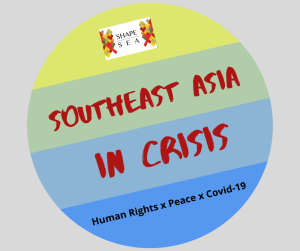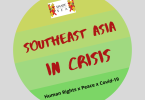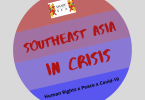Angelito P. Bautista Jr.General manager of Blue Chips Research and Consultancy Co. He holds a Master ™s degree in Communication Management from the Asian Institute of Journalism and Communication, and a Bachelor ™s degree in Communication Research from the Polytechnic University of the Philippines. His research interests include media and information literacy, and public opinion.
 Over the past few weeks, governments around the world scrambled to find ways to control the spread of COVID-19 in various ways. Strict enforcement of social distancing and quarantine were implemented but it seems that confusion still arises among the public regarding this health crisis.In the Philippines, the first case of COVID-19 was recorded on 30 January 2020. After this confirmation, local citizens, especially in the National Capital Region, started buying facemasks and alcohol for their protection. Though the quick action of the public to protect themselves was commendable, it was apparent that there is a gap in the people ™s knowledge about the virus since there was a massive proliferation of fake news and invalid information especially online. An example is how to properly use facemasks, which resulted in improper usage and hoarding. This happened again after the confirmation of the first local transmission in the first week of March, which contributed to more panic and anxiety.This is proof of why communication is important in times of crisis. With the availability of the internet and social media, and the ability of the public to create and distribute information, the government must learn how to respond away, clearly and responsibly. Once a problem arises, people who knew more about it must be proactive as much as possible— in this case, the government.Critics believe that the days or weeks after the first case was recorded in January could have been used to better inform the public about the pandemic, making them more prepared, and ensuring that they understand the current and potential severity of the crisis.However, it seems that some government officials took the issue rather lightly after the first case was recorded. “Everything is well in the country. There’s nothing really to be extra-scared of that coronavirus thing,” said Philippine President Rodrigo Duterte on 3 February 2020, during a press briefing.Another example of a seeming crisis in communication in the country happened when the Government announced the implementation of community quarantine in the NCR from 15 March to 14 April. Classes, public offices, and mass gatherings were suspended, while flexible work arrangements in the private sector were encouraged. Domestic air, land and sea travel to and from NCR were also suspended, whereas public transport remained operational.This left local residents confused, unsure how this policy will be implemented and what this means. For example, how will social distancing be enforced in crowded areas and public transport like the Metro Rail Transit (MRT)? How will workers living outside NCR go to work within the capital? In addition, the announcement resulted in panic buying, since the people were unsure if they can still be able to buy food and other essentials once the quarantine takes effect.Many also scrambled to understand how the quarantine will be implemented if people will still be allowed to go in and out of the Metropolis? Was it equivalent to a lockdown? Who will man the checkpoints? Many questions left unanswered or worse, answered differently by different government officials.By the second day of the community quarantine, an enhanced community quarantine was announced for the entire Luzon, which took effect the following day. Under this set-up, all mass gatherings including religious ones were completely prohibited, and all means of public transport were no longer allowed to limit the movement of people.But then again, more questions were raised. How will health workers go to work if public transport is suspended? How about the delivery of basic necessities such as food and other essential goods? Or what will happen to people who do not have regular jobs? Others even questioned how military checkpoints will be executed, and what are the plans of the government in terms of massive testing and disinfection?Thankfully, these questions were answered by members of the COVID-19 Inter-Agency Task Force in the subsequent media briefings.But panic, confusion, and anxieties could have been lessened if communication strategies were properly put in place. Announcement of policies coupled with proper explanation of terms, situations, and processes could have averted further problems. Remember, the public has the right to information. And that information must be complete and accurate.Responding to COVID-19 does not only require an adequate medical response. There is also a need for effective communication to ensure that the public fully understands the background and impact of the pandemic, and the solutions required to address the situation (ex. Why social distancing, why stay at home). Through this, we are sure that all policies in place are properly followed and implemented.The Government must realize that communication is more than expressing one ™s message through simple words. The delivery of the message is more important. Furthermore, effective communication is a combination of what you say, how you say it, and the actions that follow. We hope the government is learning its lessons “ that the public has the right to information and that it cannot be realized without effective communication.References:Proclamation No. 922. (PDF). Official Gazette of the Republic of the Philippines. 8 March 2020.Aspinwall, N. (2020, 14 March). Coronavirus Lockdown Launches Manila Into Pandemonium. Retrieved April 4, 2020, from https://foreignpolicy.com/2020/03/14/duterte-quarantine-philippines-coronavirus-lockdown-launches-manila-into-pandemonium/COVID-19 Situation Reports in the Philippines. (n.d.). Retrieved 4 April 2020, from https://www.who.int/philippines/emergencies/covid-19-in-the-philippines/covid-19-sitreps-philippinesPanti, L. T. (2020, March 9). Lawmaker wants weeklong NCR lockdown amid COVID-19 threat. Retrieved 4 April 2020, from https://www.gmanetwork.com/news/news/nation/728901/lawmaker-wants-weeklong-ncr-lockdown-to-prevent-spread-of-covid-19/story/
Over the past few weeks, governments around the world scrambled to find ways to control the spread of COVID-19 in various ways. Strict enforcement of social distancing and quarantine were implemented but it seems that confusion still arises among the public regarding this health crisis.In the Philippines, the first case of COVID-19 was recorded on 30 January 2020. After this confirmation, local citizens, especially in the National Capital Region, started buying facemasks and alcohol for their protection. Though the quick action of the public to protect themselves was commendable, it was apparent that there is a gap in the people ™s knowledge about the virus since there was a massive proliferation of fake news and invalid information especially online. An example is how to properly use facemasks, which resulted in improper usage and hoarding. This happened again after the confirmation of the first local transmission in the first week of March, which contributed to more panic and anxiety.This is proof of why communication is important in times of crisis. With the availability of the internet and social media, and the ability of the public to create and distribute information, the government must learn how to respond away, clearly and responsibly. Once a problem arises, people who knew more about it must be proactive as much as possible— in this case, the government.Critics believe that the days or weeks after the first case was recorded in January could have been used to better inform the public about the pandemic, making them more prepared, and ensuring that they understand the current and potential severity of the crisis.However, it seems that some government officials took the issue rather lightly after the first case was recorded. “Everything is well in the country. There’s nothing really to be extra-scared of that coronavirus thing,” said Philippine President Rodrigo Duterte on 3 February 2020, during a press briefing.Another example of a seeming crisis in communication in the country happened when the Government announced the implementation of community quarantine in the NCR from 15 March to 14 April. Classes, public offices, and mass gatherings were suspended, while flexible work arrangements in the private sector were encouraged. Domestic air, land and sea travel to and from NCR were also suspended, whereas public transport remained operational.This left local residents confused, unsure how this policy will be implemented and what this means. For example, how will social distancing be enforced in crowded areas and public transport like the Metro Rail Transit (MRT)? How will workers living outside NCR go to work within the capital? In addition, the announcement resulted in panic buying, since the people were unsure if they can still be able to buy food and other essentials once the quarantine takes effect.Many also scrambled to understand how the quarantine will be implemented if people will still be allowed to go in and out of the Metropolis? Was it equivalent to a lockdown? Who will man the checkpoints? Many questions left unanswered or worse, answered differently by different government officials.By the second day of the community quarantine, an enhanced community quarantine was announced for the entire Luzon, which took effect the following day. Under this set-up, all mass gatherings including religious ones were completely prohibited, and all means of public transport were no longer allowed to limit the movement of people.But then again, more questions were raised. How will health workers go to work if public transport is suspended? How about the delivery of basic necessities such as food and other essential goods? Or what will happen to people who do not have regular jobs? Others even questioned how military checkpoints will be executed, and what are the plans of the government in terms of massive testing and disinfection?Thankfully, these questions were answered by members of the COVID-19 Inter-Agency Task Force in the subsequent media briefings.But panic, confusion, and anxieties could have been lessened if communication strategies were properly put in place. Announcement of policies coupled with proper explanation of terms, situations, and processes could have averted further problems. Remember, the public has the right to information. And that information must be complete and accurate.Responding to COVID-19 does not only require an adequate medical response. There is also a need for effective communication to ensure that the public fully understands the background and impact of the pandemic, and the solutions required to address the situation (ex. Why social distancing, why stay at home). Through this, we are sure that all policies in place are properly followed and implemented.The Government must realize that communication is more than expressing one ™s message through simple words. The delivery of the message is more important. Furthermore, effective communication is a combination of what you say, how you say it, and the actions that follow. We hope the government is learning its lessons “ that the public has the right to information and that it cannot be realized without effective communication.References:Proclamation No. 922. (PDF). Official Gazette of the Republic of the Philippines. 8 March 2020.Aspinwall, N. (2020, 14 March). Coronavirus Lockdown Launches Manila Into Pandemonium. Retrieved April 4, 2020, from https://foreignpolicy.com/2020/03/14/duterte-quarantine-philippines-coronavirus-lockdown-launches-manila-into-pandemonium/COVID-19 Situation Reports in the Philippines. (n.d.). Retrieved 4 April 2020, from https://www.who.int/philippines/emergencies/covid-19-in-the-philippines/covid-19-sitreps-philippinesPanti, L. T. (2020, March 9). Lawmaker wants weeklong NCR lockdown amid COVID-19 threat. Retrieved 4 April 2020, from https://www.gmanetwork.com/news/news/nation/728901/lawmaker-wants-weeklong-ncr-lockdown-to-prevent-spread-of-covid-19/story/





